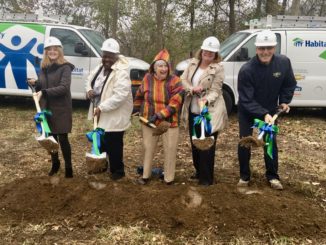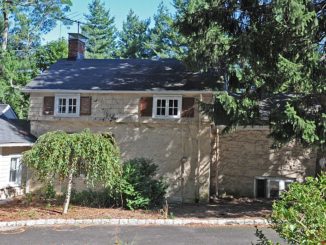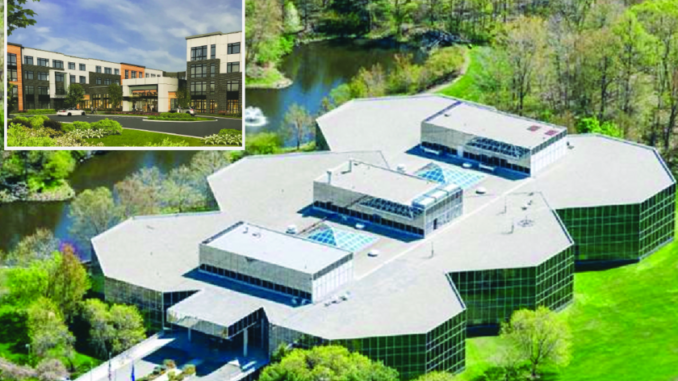
PARK RIDGE, N.J.—A Superior Court judge has set a September trial date for Park Ridge to take on its two most powerful intervenors in a long-contested settlement of its affordable housing obligations.
Set May 23, the trial might focus on how affordable obligations are calculated and whether the borough’s proposed plan satisfies those obligations.
Both Fair Share Housing Center, a state-appointed intervenor to advocate for affordable housing and Hornrock Properties, a Park Ridge developer, who proposed building 972 new units on 30 acres in Park Ridge to help fulfill local affordable obligations, have been locked in litigation and negotiations on Park Ridge’s affordable housing settlement since summer 2015.
Meanwhile, on a 7-acre adjoining parcel at One Sony Drive in Montvale, a proposed 185-unit multifamily development with 37 affordable units—to be built by Hornrock Properties—is up for preliminary approval June 18 before the Montvale Planning Board.
Hornock helping Montvale
Montvale initially opposed Hornrock’s development of its seven-acre Sony property but settled its affordable housing plan in early 2018, following often contentious negotiations with Hornrock.
At the April 16 Montvale Planning Board hearing, Chair John DePinto said Hornrock came to both towns years ago and offered to work with both to satisfy affordable obligations by developing the former Sony property, which spans both towns, and borders Woodcliff Lake and Garden State Parkway.
Had both towns worked together, the overall Hornrock development could have been “better,” he said, noting a lack of Park Ridge cooperation as “the most unfortunate aspect of this entire thing.”
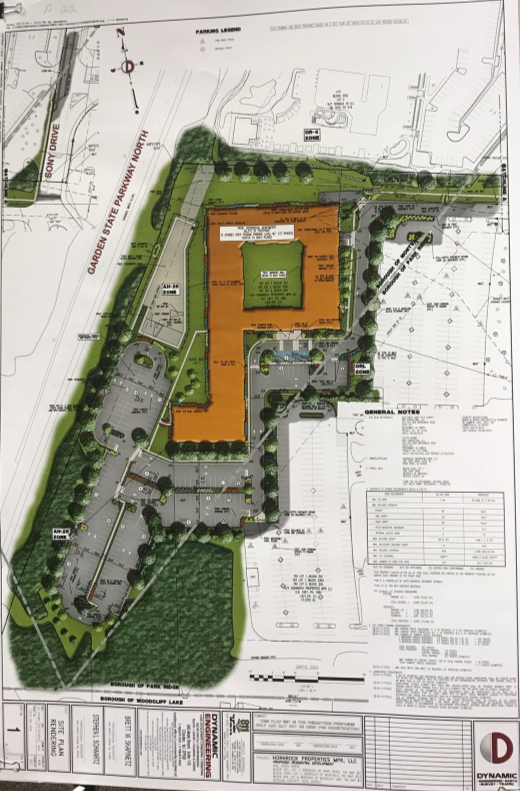
Zero units on Park Ridge side
Park Ridge’s proposed settlement plan plan allows for zero units of development on the Sony property, which Park Ridge contends should be used as commercial office space. Hornrock alleges there is no market for commercial real estate in Park Ridge.
Both sides have fought a years-long legal battle in efforts to undercut studies and reports prepared by each side’s experts in assessing real estate market conditions and how to satisfy the borough’s affordable housing obligations.
Records Pascack Press obtained indicate at least $500,000 in legal bills over the years since the court battles began, a fight which Mayor Keith Misciagna says has been well worth it.
Misciagna has steadfastly opposed Hornrock’s efforts to build what he terms “high-density overdevelopment” and says Park Ridge does not need Hornrock’s proposed 972-unit multifamily complex and its affordable units to meet its local affordable obligations.
Last summer, Misciagna and Montvale Mayor Michael Ghassali attended an Assembly hearing on affordable housing to criticize the current Superior Court-administered system, with Misciagna saying the courts allowed developers to “hold a gun to our head” to use affordable mandates to force overdevelopment on towns.
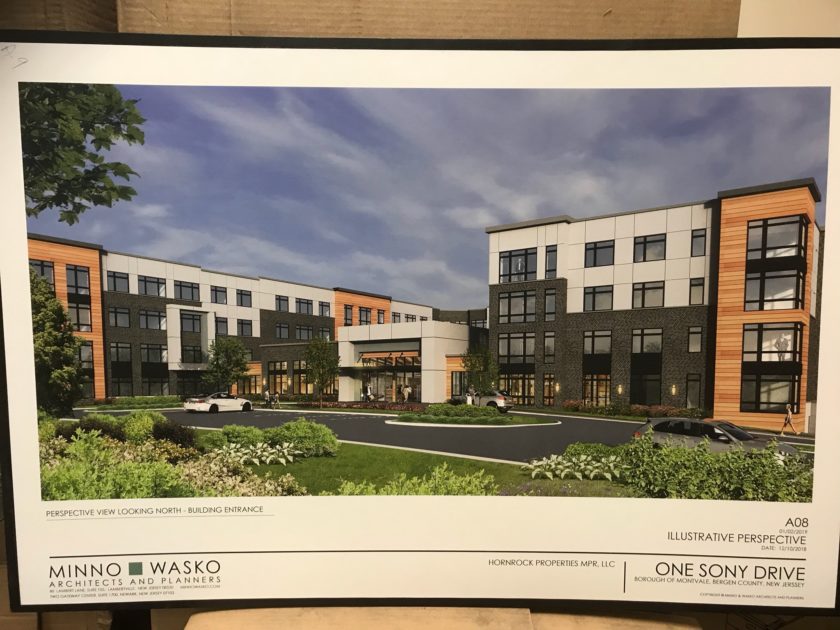
Methodology trial
On May 23, Padovano told both attorneys—special counsel Scott Reynolds for Park Ridge and Richard Hoff for Hornrock—to file briefs on pro and con aspects of two methodologies used to calculate affordable housing obligations, as well as issues with the March 18, 2018 Park Ridge affordable housing settlement plan.
Legal briefs are due July 8, a week before a scheduled July 15 case management conference where Padovano will likely decide whether to move forward with a trial about methodology or the settlement plan.
Over meetings in late 2018 and early this year, Reynolds has met with an attorney representing Fair Share Housing Center in efforts to reach a settlement agreement with Fair Share on final affordable obligation numbers.
Reynolds said May 23 he was “cautiously optimistic” that those negotiations would reach a satisfactory conclusion between Park Ridge and Fair Share Housing Center, without requiring any affordable units anywhere else in town to satisfy its affordable obligations through 2025.
Should such a settlement be reached, it was unclear what issues—in addition to a possible dispute over methodology—would be raised by Hornrock to block such a settlement.
Reynolds noted the borough was near a settlement with Bear’s Nest Developers LLC and Bergen County United Way to construct a 50-unit, 100 percent affordable housing complex on 2.4 acres near the Bear’s Nest townhomes.
While financing for the project was not detailed, it appeared a combination of grants and municipal funding may be involved. Park Ridge’s original plan recommended a 31-unit 100 percent affordable complex there but the number was increased during negotiations with Fair Share Housing Center.
50 units on 2.4 acres?
Following the meeting, Elliott Hornblass, a principal with Hornrock Properties, told Pascack Press that he believed Park Ridge was likely to incur public debt via local bonding for the Bear’s Nest project and that they’d rather incur debt and build near luxury townhomes than allow Hornrock to provide inclusionary housing to fulfill affordable requirements. He charged the 100 percent affordable site planned at Bear’s Nest was a “high-density” development.
Reynolds told Pascack Press later that one affordable unit will be paid for by Metropolitan Homes, which is negotiating to build three single-family homes elsewhere. He added that they anticipate a settlement with Bear’s Nest soon.
One testy exchange occurred May 23 when Hoff charged he was still unclear as to what the borough’s current unmet need was and what plan would be subject to trial. Hornrock contends the borough is not meeting its need and requires its proposed development to satisfy its mandate.
Reynolds said when negotiations conclude with Fair Share, Bear’s Nest Developers LLC and Metropolitan Homes, he anticipated moving to a fairness hearing to settle the affordable housing plan.
If a settlement occurs before July 15, or a fairness hearing is scheduled, Hornblass said Hornrock would advocate for its position in public, including reaching out to residents and letting the public know what Park Ridge is doing to avoid putting a 972-unit development on the Sony site.
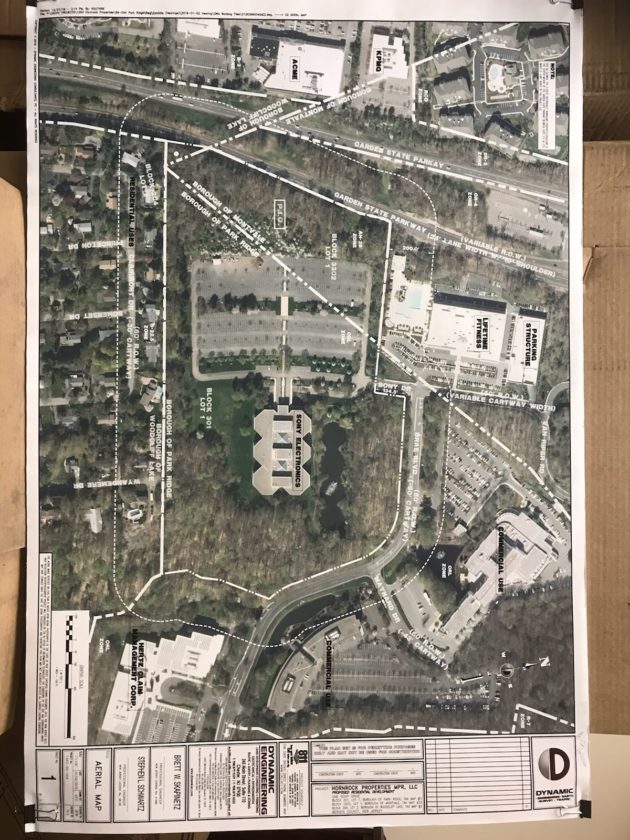
‘Why is this strung along?’
“If they want to settle, go settle. Why are we waiting for settlements? Well, get it done, why is this strung along?” said Hoff. “This case is bizarre to me, now I’ve got clarity,” said Hoff, noting the trial will be based on the March 18, 2018 Park Ridge settlement plan.
Joshua Bauers, a Fair Share Housing Center attorney, said the borough and Fair Share met with the borough several times with “generally productive” discussions on “how to settle the [affordable housing] case globally.”
He said the methodology question concerns two well-known affordable calculation formulas called the Mercer County-based Jacobsen decision and Middlesex County-based Wolfson decision He was not sure if settlement talks would conclude successfully but held out hope that would occur.
Padovano said he wanted both attorneys to address the methodology issue or an alternate to those two methods
Reynolds asked Padovano what exactly he wanted in regards to current methodologies used and how both sides felt the negotiations should move forward.
Padovano said “if there is a difference that is insurmountable” that will be addressed on July 15. He said he would like to see if there are methodology issues that are not agreeable to either side and figure out what needs to be done.
Hoff said it’s how each side wants to execute each of the steps, not the framework of each methodology, that is often in dispute.
He said how each side “calculates each of the steps” is what’s most open to dispute.
“Ironically it’s how you bake that cake wasn’t that much open to dispute, it was the ingredients that you used,” Hoff said.
He said having briefs on July 15 “will provide a strong framework” for a potential trial on methodology. When Reynolds asked about a page limit on briefs due July 8, Padovano said he would prefer “pithy” briefs.
Padovano said he anticipated pre-trial briefs coming from both attorneys in August on a methodology trial.

